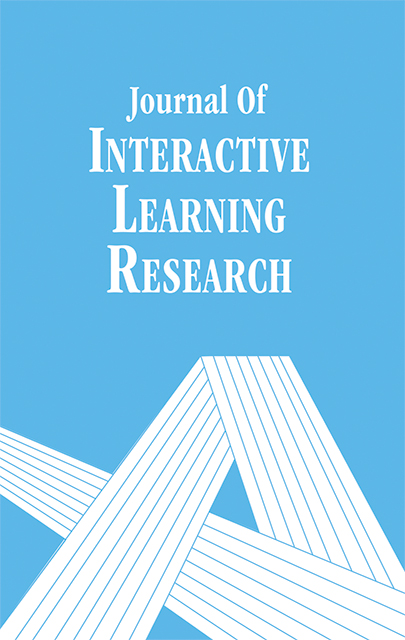
The Leadership Identification Tool: Maintaining the Quality of Interactions in Online Professional Learning Communities of Teachers
Anthony Matranga, California State University San Marcos, United States ; Jason Silverman, Emmanuel Koku, Valerie Klein, Wesley Shumar, Drexel University, United States
Journal of Interactive Learning Research Volume 31, Number 3, ISSN 1093-023X Publisher: Association for the Advancement of Computing in Education (AACE), Waynesville, NC
Abstract
Teacher professional development (PD) that supports the emergence of professional learning communities (PLCs) is effective for teachers’ learning and instructional improvement. Our work focuses on supporting the emergence of online PLCs and an emergent issue in this work is how to maintain the quality of teachers’ experiences in online PLCs when the ratio of teacher educators to teachers gets small. We address this issue by first presenting a theoretically-driven strategy, couched within the teacher PD as boundary encounters framework, that includes cultivating high influence brokers, providing them with focused PD opportunities, and supporting their continued participation in a PLC. We argue that high influence brokers should have existing capabilities to influence the focus of collaboration in PLCs and thus have leadership potential. Second, we operationalize this strategy for practitioners by designing the Leadership Identification Tool (LIT), which combines social network analysis (SNA) procedures intended to uncover indicators of leadership potential. Third, we present a use case of the LIT with our current project with online communities of mathematics teachers where we identified four participants with leadership potential. We discuss contributions to research on online community cultivation and practitioners’ use of SNA as a feedback mechanism to enhance online collaborative learning.
Citation
Matranga, A., Silverman, J., Koku, E., Klein, V. & Shumar, W. (2020). The Leadership Identification Tool: Maintaining the Quality of Interactions in Online Professional Learning Communities of Teachers. Journal of Interactive Learning Research, 31(3), 173-196. Waynesville, NC: Association for the Advancement of Computing in Education (AACE). Retrieved August 31, 2024 from https://www.learntechlib.org/primary/p/208041/.
© 2020 Association for the Advancement of Computing in Education (AACE)
